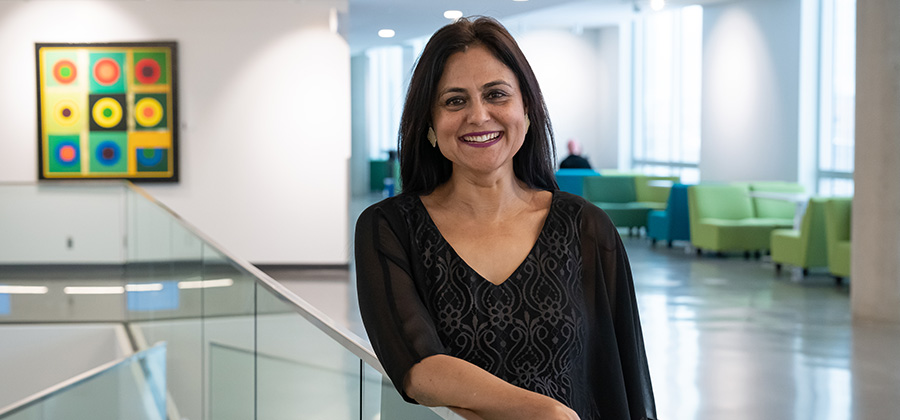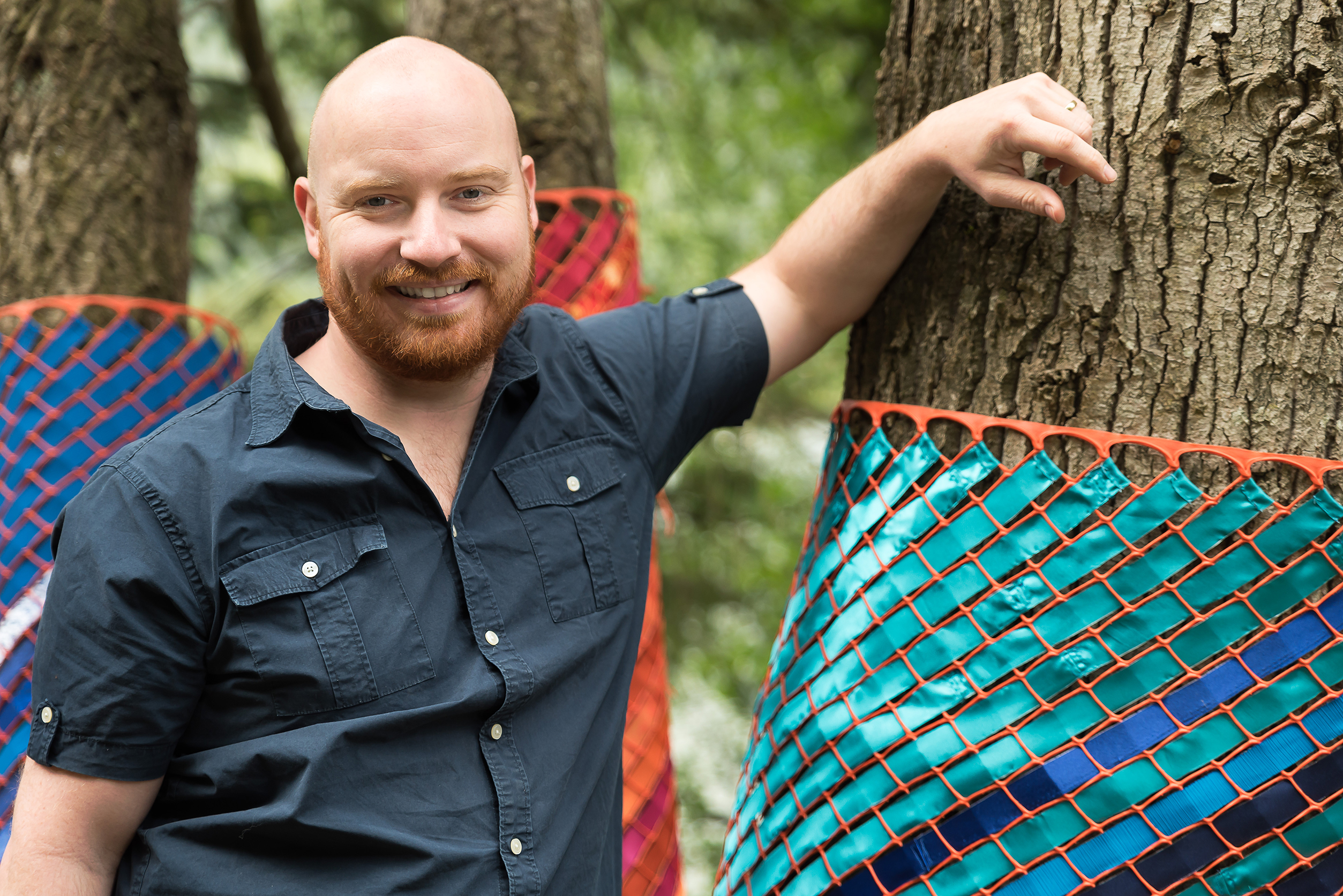Social work professor and UFV Library combine forces to help spread human trafficking awareness

The faces of the women are unforgettable. Their voices still echo in her head.
Dr. Rita Dhungel, an assistant professor with the School of Social Work and Human Services at UFV, becomes overwhelmed with emotion, mostly sadness, whenever she revisits those vivid memories from inside a brothel in India 18 years ago. Dhungel was working with a project called Safe Migration.
The pack of women — mostly of Nepalese descent — smiled and disingenuously declared their happiness and safety under the watchful eyes of their abusers, who lurked just feet away. Once the women realized Dhungel was also Nepalese and spoke Hindi, the charade was up. The women began to cry and confessed.
Oh no, we just lied to you.
We don’t want to stay here.
Please, please, please rescue us right away.
Caught somewhere in between shock and fear, Dhungel froze. She felt powerless and vulnerable. Sensing the tension, the guards quickly put an end to the conversations and banished access for the Nepal-based, non-profit organization. The incident left Dhungel with trauma that was both immediate and intense.
“I felt really, really sick,” says Dhugel, who joined UFV as a faculty member in January 2022. “I ended up being in the hospital for one week. My hands were paralized and my legs were not even moving.”
Nearly two decades after the brothel incident, Dhungel has used the experience as a source of motivation to help end global human trafficking on all levels. After joining UFV, Dhungel immediately started building relationships on campus, such as partnering with the UFV Library and working with social work students and community partners to implement human trafficking awareness initiatives and educational resources.
In March, Dhungel and the library organized an anti-human trafficking virtual panel event in collaboration with the Vancouver Police Department for International Women’s Day. They followed that up with a Voices of Women Who Survived Trafficking in Nepal photovoices exhibit, which was hosted at the Abbotsford UFV Library for a month. The library staff and research office also helped Dhungel create and house human trafficking educational resources.
“The UFV Library was honoured to collaborate with and support Dr. Rita Dhungel’s human trafficking initiatives by providing space for the event and to host the informative display pertaining to this critically important matter,” says Camille Callison, university librarian at UFV.
“Ever since I joined UFV, I have received tremendous support to make worldwide sex trafficking awareness a priority,” adds Dhungel, who credits her fellow faculty, her associate dean, the students, and especially, the UFV Library staff. “It shows how much this university cares about equity, diversity, and inclusion.”
According to the 2020 Global Report on Trafficking in Persons, there were roughly 50,000 human trafficking victims in 148 countries in 2018. In Canada, there were almost 3,000 incidents of human trafficking between 2010-20, and 96 percent of victims were women and girls, according to Statistics Canada.
Since moving to Canada in 2005, Dhungel has championed this cause while working in post-secondary institutions, first at the University of Calgary, then MacEwan University. Her 2017 doctorate dissertation research focused on reintegrating survivors of trafficking into society.
“Thinking back to the brothel, we just jumped into the agenda without building relationships and that limited what kind of action we could take,” she says. “What I learned over the years was how important staying connected to survivors and building relationships is in facilitating change.
“It allowed me to maintain that relationship and do more research that would promote social or gender justice in Nepal.”
Even though Dhungel has been able to put human trafficking issues at the forefront at UFV over the past year, she believes much more needs to be done. And will be done. She wants to go beyond a few annual events and hopes, in addition, new courses will be taught at UFV on human trafficking and smuggling.
“These classes should not only be for students within the social work program, but open to the whole university — maybe as an elective or part of the core curriculum,” Dhungel says. “That would be the best way to effectively provide education and address human trafficking.”
Dhungel will not end her crusade until abusers worldwide are shut down. She feels she owes it to all the victims that are currently out there. Maybe more so, she owes it to the victims in that brothel in India that she was unable to help but has never been forgotten.
“Obviously, I don’t remember their names, and sometimes it’s hard to remember their faces,” she says. “But they are always in my heart and working in anti-human trafficking has become my aspiration.”




